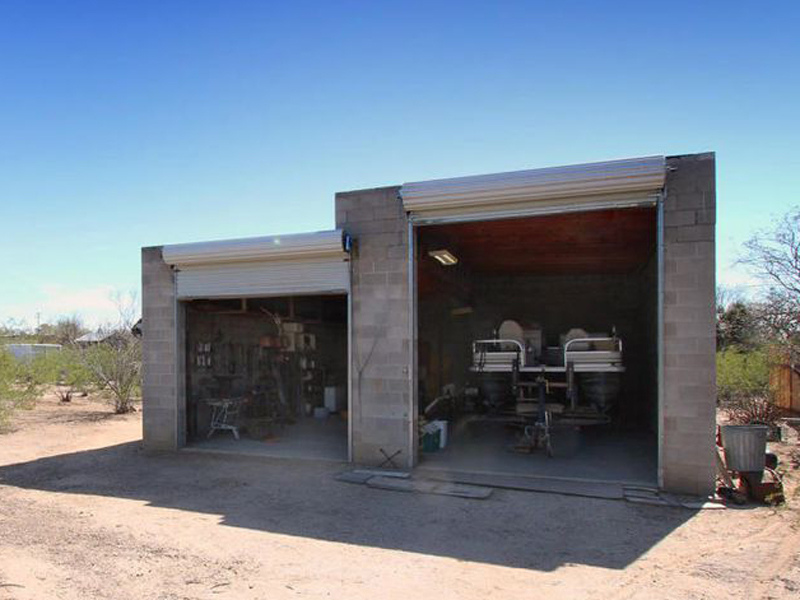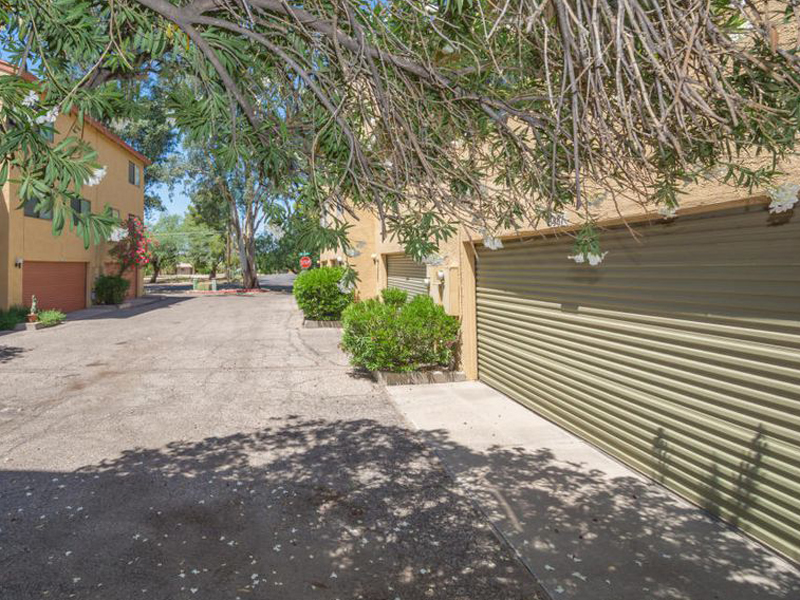Is Your Garage Door Stuck? Below's What to Do First
When your garage door won't open, begin with these important safety checks before trying any type of repairs. First, guarantee no one is standing near the door and that lorries are clear of the opening. Search for obvious signs of damage like damaged panels, curved tracks, or hanging wires. If you see a snapped springtime or seriously damaged components, stop quickly and call a specialist—-- these repair work call for specialized devices and knowledge to deal with securely.

Examine These 6 Points Before Calling a Professional
Prior to presuming you require expensive repair services, go through this fast diagnostic checklist that resolves most garage door troubles:
-
Power source: Validate the opener is plugged in and the outlet is working
-
Remote batteries: Replace dead batteries in your remote
-
Hands-on lock: Check if someone mistakenly engaged the hands-on lock
-
Obstructions: Seek particles blocking the door's path or sensors
-
Emergency launch: Make certain the red emergency cable hasn't been drawn
-
Circuit breaker: Validate the garage circuit hasn't stumbled
These simple checks settle approximately 70% of garage door problems without calling for expert treatment.
10 Common Factors Your Garage Door Won't Open
Understanding why your garage door opener isn't working aids you choose the appropriate solution. Below are the most frequent causes house owners encounter:
Dead remote batteries stand for the most basic fix—-- when batteries die, the remote can not send out signals to the opener. Power blackouts or tripped breakers cut electrical energy to the motor. Busted springs avoid the door from lifting properly and require immediate specialist interest. Sensing unit misalignment reasons safety systems to obstruct door operation. Track blockages quit rollers from relocating smoothly. Motor overload triggers automatic shutoffs when the opener identifies resistance. Restriction switch problems perplex the opener concerning door position. Wire damages interferes with the training mechanism. Weather-related problems influence door movement throughout severe temperatures. Element wear from age gradually decreases system efficiency.
Issue # 1: Dead Remote Batteries
When your wall surface button works yet your remote doesn't, dead batteries are generally the perpetrator. Many garage door remotes use either 3-volt lithium or 12-volt alkaline batteries. Eliminate the back cover of your remote and inspect the battery type. Change with fresh batteries and check the remote. If it still does not function, you may need to reprogram it to your opener. Consult your opener's guidebook for details reprogramming instructions, as the procedure varies by supplier.
Trouble # 2: Power Supply Issues
Garage door power problems usually come from loose connections or tripped circuits. Examine that the opener is strongly connected into its electrical outlet—-- vibration can loosen connections over time. Examine the outlet with one more device to check here confirm it's working. Analyze your home's breaker box for tripped circuits, especially if you've experienced tornados or power changes. GFCI electrical outlets might have tripped and require resetting. If the opener has power however won't react, the concern likely lies elsewhere in the system.
Trouble # 3: Broken or Damaged Springs
Busted garage door springtimes are amongst the most unsafe parts to take care of. If you listen to a loud bang from your garage or discover the door feels very heavy when trying to raise manually, a spring has actually likely snapped. Torsion springtimes run horizontally over the door, while expansion springs rest on either side. Never attempt springtime repair work on your own—-- these elements keep significant tension that can cause major injury or fatality. Professional substitute typically sets you back $150-$300 yet guarantees your safety.
Issue # 4: Blocked Safety Sensors
Modern garage doors feature safety sensing units that avoid closure when objects are identified. These sensors can quit the door from opening up if they're unclean, misaligned, or blocked by debris. Tidy sensing unit lenses with a soft towel and ensure nothing blocks the invisible light beam in between them. Check that sensors are appropriately aligned—-- the majority of have indication lights that show link condition. Sensing unit problems usually settle with simple cleaning and change.
Issue # 5: Track Obstructions or Damage
Garage door tracks guide rollers as the door moves up and down. Dirt, debris, old grease, or small things can jam the system. Evaluate tracks aesthetically and get rid of any type of obstructions with a brush or towel. Search for damages, flexes, or warping that could hamper smooth operation. Small track modifications are possible for convenient property owners, however significant damages calls for expert fixing to prevent more troubles or security dangers.
Problem # 6: Garage Door Opener Motor Issues
When the garage door motor runs however the door does not relocate, numerous concerns could be responsible. The electric motor might be overwhelmed and turning off as a precaution. Equipment wear, particularly in older systems, can stop correct procedure. Chain or belt drive issues impact power transmission. If you hear unusual grinding, clicking, or humming audios, quit using the opener right away. Motor repair work often cost greater than replacement, especially for devices over 10 years old.
Step-by-Step Do It Yourself Troubleshooting Guide
Follow this systematic approach to garage door fixing while focusing on safety throughout the process:
Step 1: Test the wall surface button first. If it functions yet the remote does not, focus on remote issues. If neither works, examine power supply.
Action 2: Take a look at the manual launch cord. If it's been drawn, the opener is disengaged from the door. Press the trolley back to reconnect.
Step 3: By hand test the door by disengaging the opener and attempting to raise the door by hand. It should move efficiently and remain in location when half-open.
Step 4: Examine visible parts for damage, paying special focus to springtimes, cables, and tracks.
Step 5: Check all safety functions including sensing units, limit switches, and auto-reverse features.
Step 6: Examination different controls (remote, wall button, keypad) to isolate the issue resource.
Constantly put on safety glasses and job handwear covers when executing assessments, and never ever attempt repairs on springtimes or high-tension parts.
When to Call a Specialist vs. DIY Solutions

Understanding when to call a garage door professional versus attempting DIY repairs protects both your security and your wallet. Take care of these problems on your own: dead remote batteries, power supply problems, minor track cleansing, sensor cleaning and placement, and basic lubrication.
Never attempt these repairs on your own: spring replacement or adjustment, cable television fixings, significant track realignment, electric circuitry concerns, opener electric motor substitute, or any kind of repair work entailing high-tension components. Expert specialists have specialized devices, training, and insurance to take care of harmful repairs safely.
Consider fixing costs versus substitute expenses, particularly for doors over 15 years old. Modern garage doors provide better security attributes, energy efficiency, and integrity than older designs.
Emergency Garage Door Solutions
When you're stuck to a garage door that will not open and need immediate access, follow these emergency treatments:
Manual Procedure: Pull the red emergency situation release cord to disengage the opener. This permits hands-on procedure however needs proper strategy to avoid injury. Raise the door slowly and equally, using leg muscular tissues as opposed to your back. Many property doors weigh 100-150 pounds, making them convenient for most grownups.
Short-term Repairs: If the door opens by hand but won't keep up, prop it open with sawhorses or clamps—-- never ever use your body or automobiles as supports. For doors that won't close totally, make certain the opening is safeguarded if you need to leave.
Emergency Solution: Several garage door business offer 24/7 emergency service for situations including protection issues, entraped vehicles, or total system failings. While more costly than regular service phone calls, emergency repairs offer immediate remedies when required most.
Safety Warning: What NOT to Do
Garage door safety and security requires recognizing harmful repair work that ought to never be attempted by property owners:
Never ever attempt to repair springs—-- they store sufficient energy to trigger deadly injuries when they break or are incorrectly dealt with. Don't compel a stuck door—-- this can damage the opener, tracks, or door panels, producing a lot more expensive problems. Prevent bypassing safety functions—-- sensors and auto-reverse devices protect against significant injuries and home damages.
Do not neglect weird sounds—-- grinding, scratching, or banging sounds indicate issues that worsen in time. Never ever use the door if cords are frayed or broken—-- the door might fall unexpectedly. Do not attempt electric repair work unless you're a qualified electrical expert—-- garage door openers use both 120V home current and low-voltage control circuits.

Preventative Maintenance to Stay Clear Of Future Problems
Regular garage door maintenance prevents most common troubles and prolongs system life expectancy significantly:
Regular monthly Tasks: Visual inspection of all elements, examining auto-reverse safety attributes, checking and tightening up equipment, and cleansing tracks and sensing units.
Quarterly Jobs: Oiling all relocating get rid of proper garage door lube, screening handbook operation, and checking weather condition sealing.
Yearly Tasks: Expert evaluation and tune-up, spring adjustment if needed, and opener upkeep consisting of belt or chain change.
Seasonal Jobs: Preparing for weather extremes, inspecting insulation, and changing opener settings for temperature adjustments.
Consistent maintenance prices far less than emergency repair work and makes sure dependable procedure year-round.
Garage Door Will Not Open Up FAQs
Why will not my garage door open with the remote yet deals with the wall switch?
This normally suggests dead remote batteries, signal disturbance, or the demand to reprogram the remote. Examine batteries initially, then consult your opener manual for reprogramming directions.
Can I manually open my garage door if the power is out?
Yes, pull the red emergency release cable to disengage the opener, after that lift the door manually. Be planned for the door's complete weight and lift with correct method to avoid injury.
Just how do I know if my garage door springtime is damaged?
Signs consist of a loud bang from the garage, the door sensation exceptionally heavy when raising by hand, noticeable voids in the springtime coils, or the door only opening a few inches prior to quiting.
Is it safe to utilize my garage door if it won't open up right?
No, partial procedure suggests mechanical issues that might worsen unexpectedly. Quit utilizing the door and have it checked by a professional to stop additional damage or injury.
What should I do if my garage door opens yet will not shut?
Examine safety sensors for obstructions or imbalance, analyze the tracks for particles, and check the auto-reverse feature. If these do not fix the issue, seek advice from an expert.
How much does it cost to fix a garage door that won't open up?
Expenses vary widely relying on the problem: battery substitute ($5-$10), expert medical diagnosis ($50-$100), spring replacement ($150-$300), or opener replacement ($200-$500).
Can weather impact my garage door's capability to open?
Yes, severe cold can thicken lubricating substances and impact steel elements, while heat can cause development problems. Most problems resolve as temperature levels normalize, but consistent issues may need professional attention.
Why does my garage door open a couple of inches then quit?
This usually indicates busted springs, restriction switch problems, or track obstructions. The opener's safety and security functions stop operation when resistance is detected, avoiding damage to the electric motor or door.
Obtain Professional Aid for Facility Problems
When do it yourself fixing does not fix your garage door problems, specialist technicians provide the proficiency and devices required for secure, lasting repair work. Qualified specialists detect problems accurately, utilize manufacturer-approved parts, and provide warranties on their job.
Expert services include: comprehensive system evaluations, springtime and wire replacement, opener repair and replacement, track placement and replacement, electrical troubleshooting, and emergency solution calls.
What to anticipate: in advance rates, qualified and insured technicians, same-day service for numerous repairs, and follow-up maintenance recommendations.
Many garage door business use free price quotes for major fixings and can supply immediate options for urgent troubles affecting home protection or lorry accessibility.
Obtaining Your Garage Door Working Again
A garage door that will not open doesn't need to spoil your day or damage your budget plan. Begin with straightforward troubleshooting actions like inspecting power, changing batteries, and checking out for apparent blockages. Several troubles have quick do it yourself solutions that bring back typical procedure within minutes.
Nonetheless, identify when specialist assistance is necessary—-- especially for spring-related concerns, electric troubles, or facility mechanical failings. Attempting harmful repair services on your own runs the risk of significant injury and frequently creates extra pricey issues.
Regular upkeep stops most garage door problems and makes certain trusted procedure for several years ahead. When issues do take place, resolve them promptly to stay clear of more expensive repair work and preserve your home's safety and security and convenience. Whether you require a simple battery substitute or full system overhaul, remedies exist to obtain your garage door functioning efficiently again.